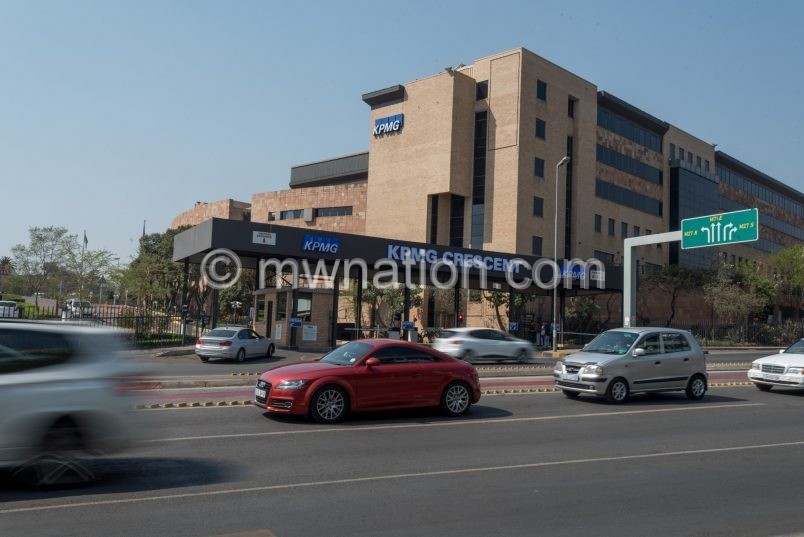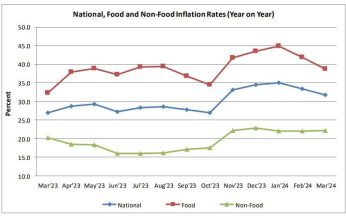Ripples of KPMG scandal in SA
In 2001, South African musician Lucky Dube sang: “It takes a million people to build a reputation, but one stupid fool to destroy all they have built.”
The lines from Teach the World aptly sums up the decline of KPMG in the fallen reggae singer’s homeland following revelations of its underhand dealings with the Guptas, the billionaire family accused of controlling President Jacob Zuma.

KPMG South Africa, which has been abandoned by big clients and top bosses, is battling for a clean start after reports that its auditors spruced accounts of the Guptas.
For corporate captains and business administration students, the unfolding fiasco has turned the global partnership of professionals offering auditing, tax and advisory services into an example of what not to do to avoid wrecking a reputable company’s credibility.
Big lessons
The scandal was a major learning point when South African influential branding strategist Thebe Ikalafeng offered a keynote address to almost 70 chief executive officers at Club Makokola in Mangochi on Friday.
“It takes over 20 years to build a reputation, but less than five minutes to destroy it,” the South African motivational speaker warned the business executives. “Think about where you are coming from, the sacrifices you made, the learning, the hard work and the networking on your way up the ladder. Do you want to waste all that because of a character flaw?”
Ikalafeng, named one of 100 most powerful voices on the continent by New African, was speaking on how to steer their organisations to success in business turbulence at the national executive meeting organised by the Tevet Authority.
In Malawi, some companies have capitulated for aiding and abating Cashgate, a syndicate in which politicians and civil servants connived with private firms siphon billions from Treasury for no goods and services delivered.
Ikalafeng urged the heads of start-ups and established business to jealously guard against breaching the public image, values and promises they project.
“Do not put in place the values for an organisation that you are not going to be the person to exemplify,” he warned them.
Ikalafeng reckoned character flaws can fell topmost bosses and their organisation as was the case in what he terms “the big fall of KPMG” in South Africa.
According to the branding expert, it is ironic that a business whose name rendered credibility to financial management of both public and private organisation finds itself under fire for taking short-cuts.
He warned the business leaders: “We are doing business in tricky times where the mistakes we do not only messes up your name, but also your organisation. Right now, KPMG is on the verge of a big fall due to allegations of enabling state capture. I don’t think KPMG will survive this. This is why credibility matters.”
For Ikalafeng, credibility has nothing to do with whether one is good or not.
“It has everything to do with whether you do what you say or not,” he reasoned.
A new start
He urged movers and shakers in the corporate world to be as consistent as US firebrand president, Donald Trump.
To him, the billionaire at the helm of Trump Towers could be the most credible leader-unswerving.
He explained: “Love him or hate him, Trump is the same man he said he was during his campaign. He is the same man US voted for. He promised to seal the borders and once he got into power, the first executive order he signed had to do with immigration issues. That’s consistency, isn’t it?”
Following the mass exodus of its top clients and massive resignations, KPMG is battling for a new lease of life in South Africa.
Nhlamu Dlomu, the new CEO of the troubled business administration firm, on Monday announced a clean start by naming the new executive team.
“I am pleased to announce a strong and experienced team of KPMG partners to lead the firm. This is day one for the new KPMG, a KPMG where public interest will share an equally important role with enhanced governance, quality and ethics,” he said.
Dlomu took over from Trevor Hoole, who resigned last month in a clean-up that has claimed the scalps of three other top managers.
Public interest first
The development has sent ripples to the rest of the continent. In an interview, Institute of Chartered Accountants in Malawi (Icam) chief executive officer Francis Chinjoka Gondwe described it as a call for business managers, especially accountants, to always live up to high ethical standards.
When asked about the major lessons from the widely publicised scandal, he explained: “The key principles are objectivity and independence. The Accountants should be objective and independent when carrying out their duties. “They must protect the interests of the public always. Personal interests or those of the client are secondary.”
By last December, Icam had 1 391 members and 8 145 active students.
He urged them to always resist the hurry for profits and to dominate the market domination, saying this pressure is leading to professionals to compromise ethics.
The Icam boss, the institute is worried with increased media reports of financial scandals involving accountants.
He explained: “We are investigating all the reports and indications are that they will all be included by end of the year. We have about 10 or so cases which we are investigating.
“The challenge is that we are told we can’t investigate matters which are in courts. However, we have been informed by Malawi Law Society that the two processes are different.”
The cases are handled by the Ethics and Investigations Committee deregisters, warns or fines those found guilty.
The code of ethics, the bible for accountants, requires them to stay clear of trouble.
For years, some errant accountants have gone scot-free because they are not members of Icam.
However, the Public Accountants and Auditors Act now makes it mandatory for all accountants to register with Malawi Accountants Board through Icam.
“It is no secret short-term unprofessional gains lead to reputation damage and long term loss of business. Adherence to professional guidelines safeguards the future of businesses,” he said.
Best tagline
Vice-President Saulos Chilima, speaking at the national executive meeting in Mangochi, asked business leaders to always do what they ought to do. President Peter Mutharika’s deputy was the chief executive officer of Airtel in Malawi before he ventured into politics in 2013. He called for a change of mindset, saying decision-makers do not need anyone to fly in, tell them what they already know or to bribe them with allowances to do the needful to keep their organisation afloat in turbulent times. According to Chilima, the major integrity test for business executives involves advising board members truthfully, “not lying to them because one is afraid of being sacked.”
And Ikalafeng candidly reminded them.
He explained: “For any individual and organisation, the best marketing line is: you can trust me. Your brand is what people say about when you leave the room. If you cannot be trusted, you deserve to be kicked out of business.”





